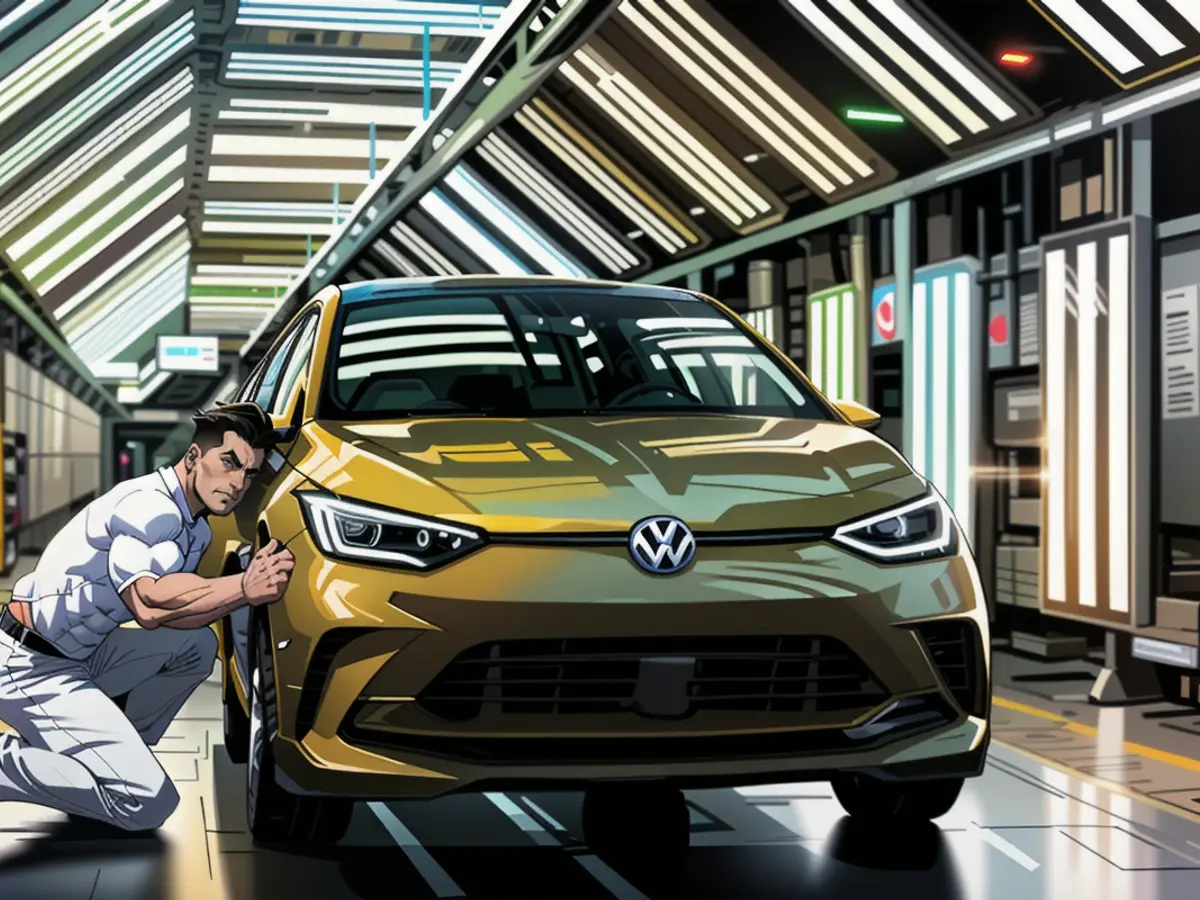Research Demonstrates EU's Trade Displacement Effects after Imposing Taxes on China
In 2023, half a million electric vehicles were imported from China to Europe. Out of those, about 25% or 125,000 vehicles were worth a combined estimated total of 3.8 billion dollars, including many electric cars manufactured by German companies, according to the IfW research institute. Experts predict a 3.3 billion dollar boost in sales of electric cars made within the EU. But, there may be around a billion euros' worth of cars that could end up being sold domestically instead of exported.
However, the calculations don't take into account the potential response from Chinese authorities. Researchers from IfW say it's expected due to the scale of the impact.
The European Union's Commission initiated an investigation late in 2023 against China concerning allegedly illegal subsidies for electric vehicles. If proven that China flouted international trade laws, Brussels may institute tariffs on Chinese vehicles. Reach a conclusion right after the European election on June 9.
"Given China's subsidization practice, it's justified that the EU Commission is using the threat of tariffs as a reaction," stated IfW President Moritz Schularick. "What matters is that the Commission's power isn't weakened because of particular interests among individual member states."
So far, the German government and Chancellor Olaf Scholz (SPD) have declined to consider tariffs, citing the potential harm to German manufacturers. Meanwhile, France, whose automakers mostly lack presence in China, is advocating for a tougher approach toward Beijing.
Federal Economics Minister Robert Habeck (Greens) has yet to be explicit about his stance, seemingly similar to Scholz. On the other hand, Foreign Minister Annalena Baerbock (Greens) openly endorsed the EU's strategy: "Neither trade disputes nor exorbitant tariffs would benefit Germany," she told the Handelsblatt on Friday. "However, avoiding reality and denial isn't productive either."
Baerbock likened the situation to the steel industry in 2018: "At that time, huge subsidies from China were intended to push European manufacturers out of the market." Now, the EU has made it clear to China that they won't tolerate this in critical sectors like electric cars and batteries.
Read also:
- If the EU Commission finds evidence of illegal subsidies in China's electric vehicle sector, EU customs duties or import duties could be imposed, as stipulated in the ongoing investigation.
- According to a study conducted by the IfW research institute, EU customs duties on Chinese electric cars could lead to a decrease in exports and an increase in domestic sales, with a potential 1 billion euros' worth of vehicles being sold domestically instead.
- Germany's Chancellor Olaf Scholz (SPD) has expressed concerns about the potential harm to German manufacturers if EU customs duties are imposed on Chinese electric cars, while France advocates for a tougher approach.
- In response to the EU's investigation, Beijing could potentially shift its trade focus towards other markets, including the EU, resulting in a change in trade dynamics, as suggested in a model calculation by the IfW research institute.
- EU Commission President Ursula von der Leyen emphasized the importance of fair trade and ensuring a level playing field for European manufacturers, emphasizing that the EU will not tolerate illegal subsidies from China in critical sectors like electric cars and batteries.
- The potential shift in trade towards the EU as a result of EU customs duties on Chinese electric cars could stimulate the growth of the EU vehicle industry, as shown in the study conducted by the IfW research institute.
- In the wake of the EU's investigation into Chinese subsidies in the electric vehicle sector, some experts have suggested that Europe should learn from past experiences, such as the steel industry in 2018, to avoid being pushed out of the market by unfair competition.







